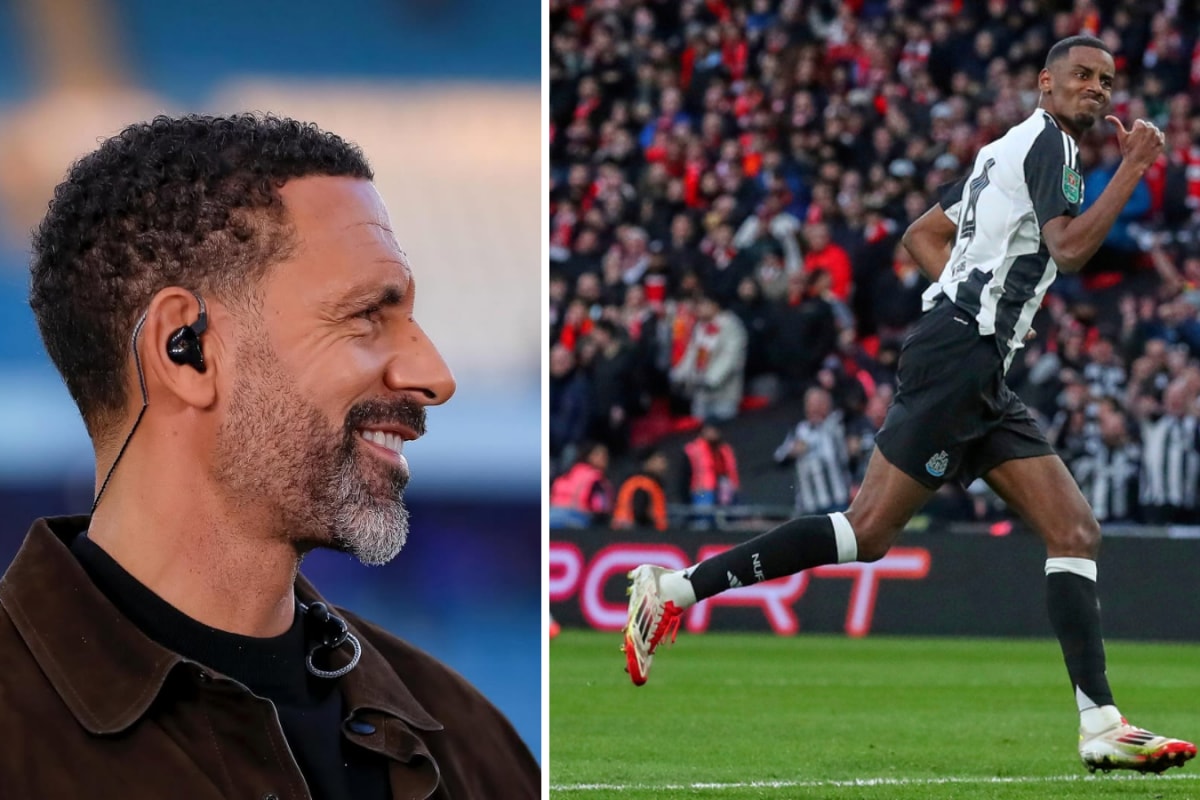

The recent transfer of Alexander Isak from Newcastle United to Liverpool has sparked considerable debate, with former Manchester United defender Rio Ferdinand offering a particularly strong opinion on the situation. Ferdinand's comments come in the wake of what many perceive as a cold and terse departure statement issued by Newcastle United, fueling speculation about the circumstances surrounding the move.
Isak, who joined Newcastle from Real Sociedad in August 2022 for a reported £63 million, quickly became a fan favorite. During his time with the Magpies, the Swedish international forward made 109 appearances, scoring 62 goals. In the 2023/24 season, Isak's performance reached new heights as he bagged 25 goals in 40 games, earning nominations for the Premier League's Player of the Season and Young Player of the Season awards. He also ended Newcastle's 70-year wait for a major domestic trophy by scoring the winning goal in the Carabao Cup final against his future club, Liverpool.
However, the summer of 2025 saw a dramatic shift, with reports emerging of Isak's desire to move to Anfield. Ultimately, Liverpool secured his signature for a British record fee of £125 million. Newcastle's subsequent 37-word statement announcing the sale, devoid of any gratitude or acknowledgment of Isak's achievements, spoke volumes.
This is where Rio Ferdinand enters the fray, voicing strong opinions about the situation. While the exact details of Ferdinand's comments require further clarification from available sources, the general sentiment revolves around the idea that football is a ruthless business. Ferdinand seems to be suggesting that being a "nice guy" doesn't necessarily translate to success in the cutthroat world of professional football and that clubs often prioritize their interests above all else.
Ferdinand's perspective may stem from a belief that Isak was perhaps promised a move under certain conditions, and that Newcastle United didn't honor these alleged promises. He alluded to a potential "gentleman's agreement" between Isak and a former club official, suggesting that this agreement was not upheld by the new regime. Ferdinand's comments also touch upon the broader issue of player power and the often-conflicting interests of players and clubs. He draws from his own experience at Leeds United, where he pushed for a move to Manchester United, recognizing that sometimes players need to force a transfer to achieve their career goals.
Furthermore, Ferdinand may be criticizing Newcastle's handling of the transfer from a public relations standpoint. He may believe that the club should have been more transparent with the fans regarding the asking price for Isak. He posits that transparency could have helped fans understand Isak's frustration if the club was deliberately pricing him out of a move.
Regardless of the specifics, Ferdinand's overarching point appears to be a defense of Alexander Isak's actions within the context of a harsh and unforgiving industry. He highlights the power dynamics between players and clubs, suggesting that clubs often "get away with murder" in their dealings, potentially at the expense of individual players.
The transfer saga has concluded with Isak joining Liverpool, where he will wear the number 9 shirt and has signed a six-year contract. Newcastle United, meanwhile, have moved to replace him by signing Nick Woltemade from Stuttgart and Yoane Wissa from Brentford. Only time will tell if Isak's move to Liverpool will bring him the trophies he desires and whether Newcastle United's replacements can fill the void left by his departure.